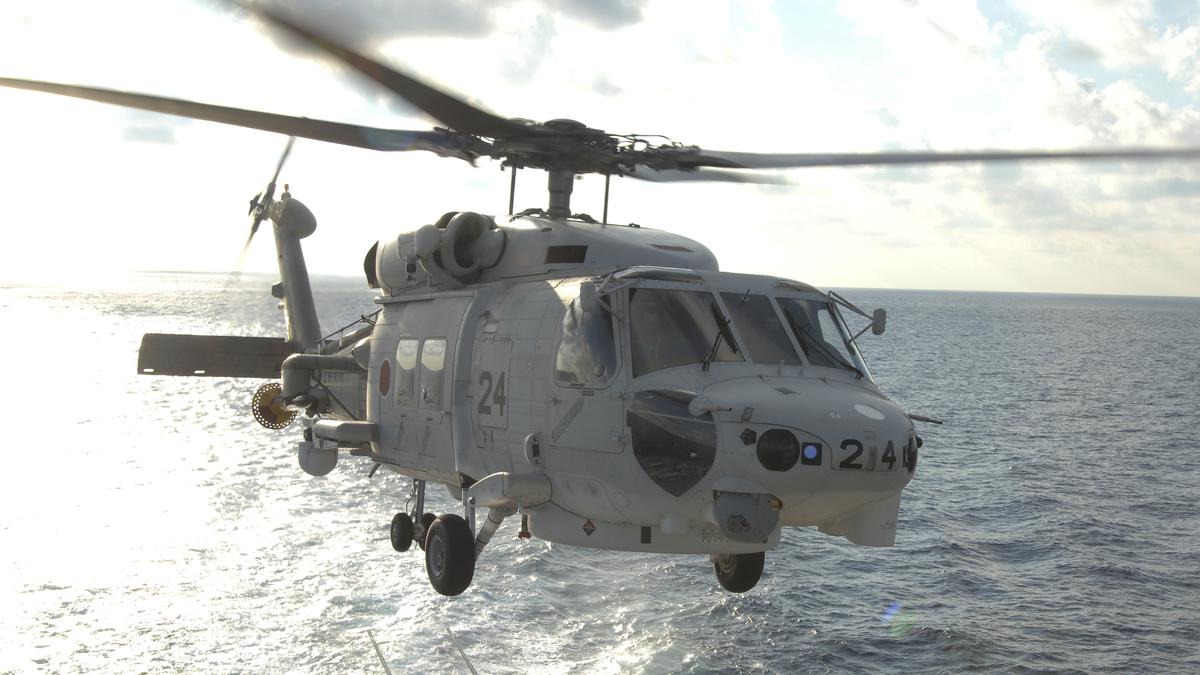
Two Japanese navy helicopters crash during training; one dead, seven missing
The Hindu
Japanese navy helicopters crash in Pacific Ocean during training flight, one crew member dead, seven missing, cause unknown.
Two Japanese navy helicopters carrying eight crew members crashed in the Pacific Ocean south of Tokyo during a nighttime training flight after possibly colliding with each other, the country's Defence Minister said Sunday. One crew member who had been recovered from the waters was later pronounced dead, while rescuers searched for seven others who were still missing.
The two SH-60K choppers from the Maritime Self Defence Force were carrying four crew each and lost contact late Saturday near Torishima island about 600 kilometres (370 miles) south of Tokyo, Defence Minister Minoru Kihara told reporters.
The cause of the crash was not immediately known, but the two helicopters might have collided with each other before crashing into the water, Kihara said.
Rescuers have recovered a flight data recorder, a blade from each helicopter, and fragments believed to be from both choppers in the same area, signs that the two SH-60Ks were flying close to each other, Kihara said. Officials will analyze the flight data to try to determine what led to the crash.
The MSDF deployed eight warships and five aircraft for the search and rescue of the missing crew.
The helicopters, twin-engine, multi-mission aircraft developed by Sikorsky and known as Seahawks, were modified and produced in Japan by Mitsubishi Heavy Industries. They were on nighttime anti-submarine training in the waters, Kihara said. One lost contact at 10:38 p.m. (1338 GMT) and sent an automatic emergency signal a minute later.
Only one distress call was heard — another sign the two helicopters were near the same place, because their signals use the same frequency and could not be differentiated, Kihara said.





















 Run 3 Space | Play Space Running Game
Run 3 Space | Play Space Running Game Traffic Jam 3D | Online Racing Game
Traffic Jam 3D | Online Racing Game Duck Hunt | Play Old Classic Game
Duck Hunt | Play Old Classic Game











